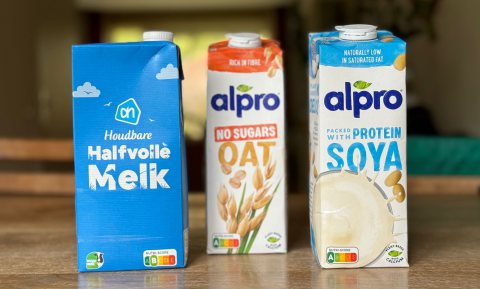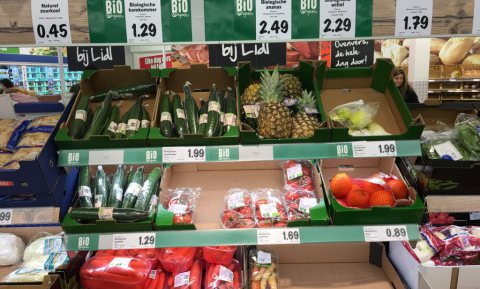De bevindingen van een GfK onderzoek naar de houding van Europeanen ten aanzien van voeding en gezondheid laat zien dat Nederlanders en Engelsen de minste moeite hebben met GMO's - voeding gemaakt van genetisch gemanipuleerde gewassen, door sommigen ook wel 'Frankenfood' genoemd.
Het persbericht:
Nuremberg, 21 December 2004 – The response to genetically modified (GM) food varies greatly throughout Europe. While Austrians and the French are fervently anti GM food, people in Poland and the UK are paying little attention to this topic. Consumers in the Netherlands have few reservations against food containing genetically modified ingredients. These are some of the findings of GfK’s European Consumer Study 2004, for which 9,400 consumers in eight EU countries were asked about their attitudes towards a healthy diet and genetically modified food.
At present, 59 per cent of all Austrian and 51 per cent of French consumers indicated that under no circumstances were they prepared to buy food containing genetically modified ingredients. In Germany, the proportion of people who object to GM products has risen from just under 33 per cent in 2001 to currently 44 per cent. In Spain and Italy, almost 33 per cent of consumers stated “don’t know” because they did not feel they had sufficient information to voice an opinion.
Polish and British consumers proved to be the least interested in the topic. In these countries, one in four respondents said they had no interest in the GM food issue.
In the Netherlands one in four consumers, and in the UK one in five, could imagine possibly buying GM products if they formed part of the range of products available.'
Zijn we dan inmiddels zo 'verengelsd' en misschien wel veramerikaniseerd dat we geen probleem meer hebben met wetenschappelijk in plaats van natuurlijk eten?
Dit artikel afdrukken
Het persbericht:
Nuremberg, 21 December 2004 – The response to genetically modified (GM) food varies greatly throughout Europe. While Austrians and the French are fervently anti GM food, people in Poland and the UK are paying little attention to this topic. Consumers in the Netherlands have few reservations against food containing genetically modified ingredients. These are some of the findings of GfK’s European Consumer Study 2004, for which 9,400 consumers in eight EU countries were asked about their attitudes towards a healthy diet and genetically modified food.
At present, 59 per cent of all Austrian and 51 per cent of French consumers indicated that under no circumstances were they prepared to buy food containing genetically modified ingredients. In Germany, the proportion of people who object to GM products has risen from just under 33 per cent in 2001 to currently 44 per cent. In Spain and Italy, almost 33 per cent of consumers stated “don’t know” because they did not feel they had sufficient information to voice an opinion.
Polish and British consumers proved to be the least interested in the topic. In these countries, one in four respondents said they had no interest in the GM food issue.
In the Netherlands one in four consumers, and in the UK one in five, could imagine possibly buying GM products if they formed part of the range of products available.'
Zijn we dan inmiddels zo 'verengelsd' en misschien wel veramerikaniseerd dat we geen probleem meer hebben met wetenschappelijk in plaats van natuurlijk eten?
Nog 3
Je hebt 0 van de 3 kado-artikelen gelezen.
Op 5 mei krijg je nieuwe kado-artikelen.
Op 5 mei krijg je nieuwe kado-artikelen.
Als betalend lid lees je zoveel artikelen als je wilt, én je steunt Foodlog
Lees ook











